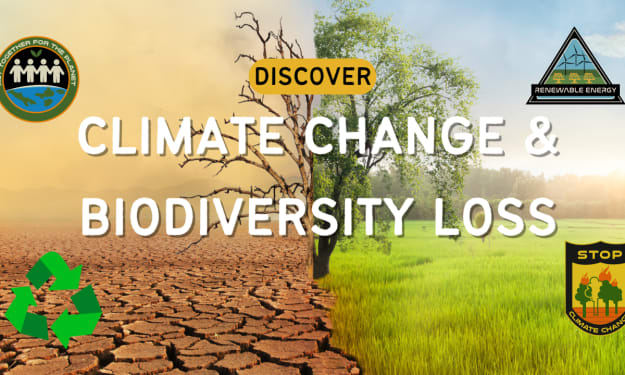11 things you can do in your local area to contribute to species biodiversity, renewable living, and energy conservation.
We need to take action at both a global and local level.
Biodiversity is the variety of life on Earth, including all the different species of plants, animals, and microorganisms that make up our ecosystems. Biodiversity is essential to the health of our planet, providing important ecosystem services such as clean air and water, food, and medicine. However, human activities such as deforestation, pollution, and climate change are putting pressure on biodiversity, leading to species extinction and habitat loss.
To help protect biodiversity, we need to take action at both a global and local level. In this guide, we will discuss 11 things you can do in your local area to contribute to global species biodiversity, renewable living, and energy conservation.
Support local conservation efforts: One of the most effective ways to contribute to global biodiversity is to support local conservation efforts. Find out what conservation organizations are active in your area and consider volunteering or donating to support their work. You can also participate in local conservation events such as habitat restoration projects, species monitoring, and public education programs.
Create habitat for wildlife: Creating habitat for wildlife in your backyard or community can provide important resources for local species and help promote biodiversity. You can plant native plants, create a birdhouse or nesting box, or set up a small pond or water feature to attract local wildlife.
Reduce your carbon footprint: Climate change is one of the biggest threats to global biodiversity, so reducing your carbon footprint is an important way to help protect the planet. You can reduce your carbon footprint by conserving energy in your home, using public transportation or carpooling, and eating a plant-based diet.
Choose renewable energy: Renewable energy sources such as solar, wind, and geothermal power can help reduce greenhouse gas emissions and support a transition to a more sustainable energy system. Consider installing solar panels on your home or purchasing renewable energy from your local utility.
Reduce, reuse, and recycle: Reducing waste is an important way to conserve resources and reduce the environmental impact of our consumption. You can reduce waste by using reusable bags, bottles, and containers, composting organic waste, and recycling materials such as paper, plastic, and metal.
Conserve water: Water conservation is important for preserving freshwater ecosystems and ensuring that we have a sustainable supply of clean water. You can conserve water by using low-flow fixtures in your home, fixing leaks, and reducing outdoor water use.
Plant a garden: Planting a garden can provide important habitat for local wildlife, as well as produce fresh fruits and vegetables for your family. You can choose native plants that are adapted to your local climate and soil conditions to promote biodiversity.
Support local farmers: Supporting local farmers who use sustainable farming practices can help reduce the environmental impact of agriculture and promote biodiversity. Look for farmers who use organic or regenerative farming practices, and choose locally produced food whenever possible.
Avoid single-use plastics: Single-use plastics such as straws, utensils, and plastic bags are a major source of pollution in our oceans and can harm wildlife. You can avoid single-use plastics by using reusable alternatives such as metal straws and bamboo utensils, and bringing your own reusable bags when you shop.
Participate in citizen science: Citizen science projects allow members of the public to contribute to scientific research and monitoring efforts. You can participate in local citizen science projects to monitor local species, track environmental changes, and contribute to conservation efforts.
Support green spaces: Green spaces such as parks, nature reserves, and urban forests are important for promoting biodiversity and providing recreational opportunities for local communities. You can support green spaces by volunteering
This article emphasizes the significance of supporting green spaces like parks, nature reserves, and urban forests, which promote biodiversity and provide recreational opportunities for communities. By implementing these actions, individuals can make a positive impact on local biodiversity and contribute to the larger goal of protecting the planet's ecosystems.
About the Creator
Joel Brown
I make an effort to provide helpful advice and energizing techniques to support your success in every area of life. I hope you enjoy my articles. Thank you for visiting this space. I appreciate it.






Comments
There are no comments for this story
Be the first to respond and start the conversation.